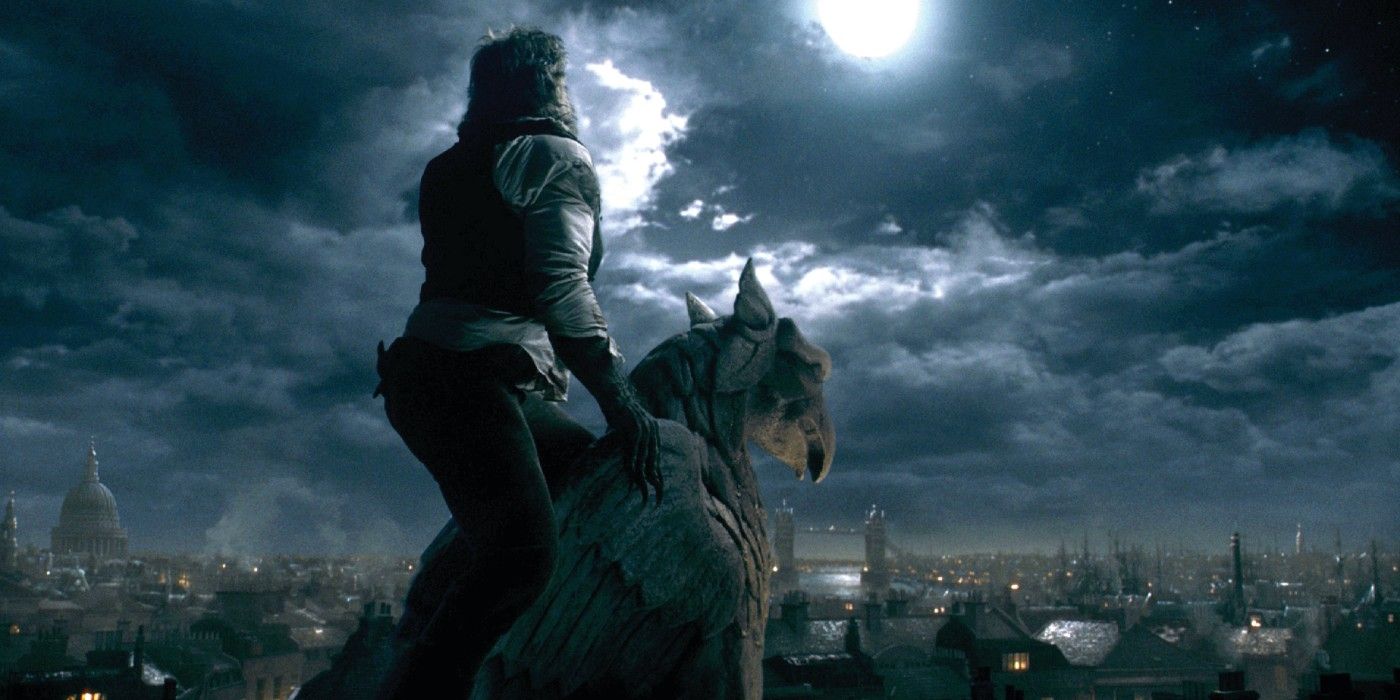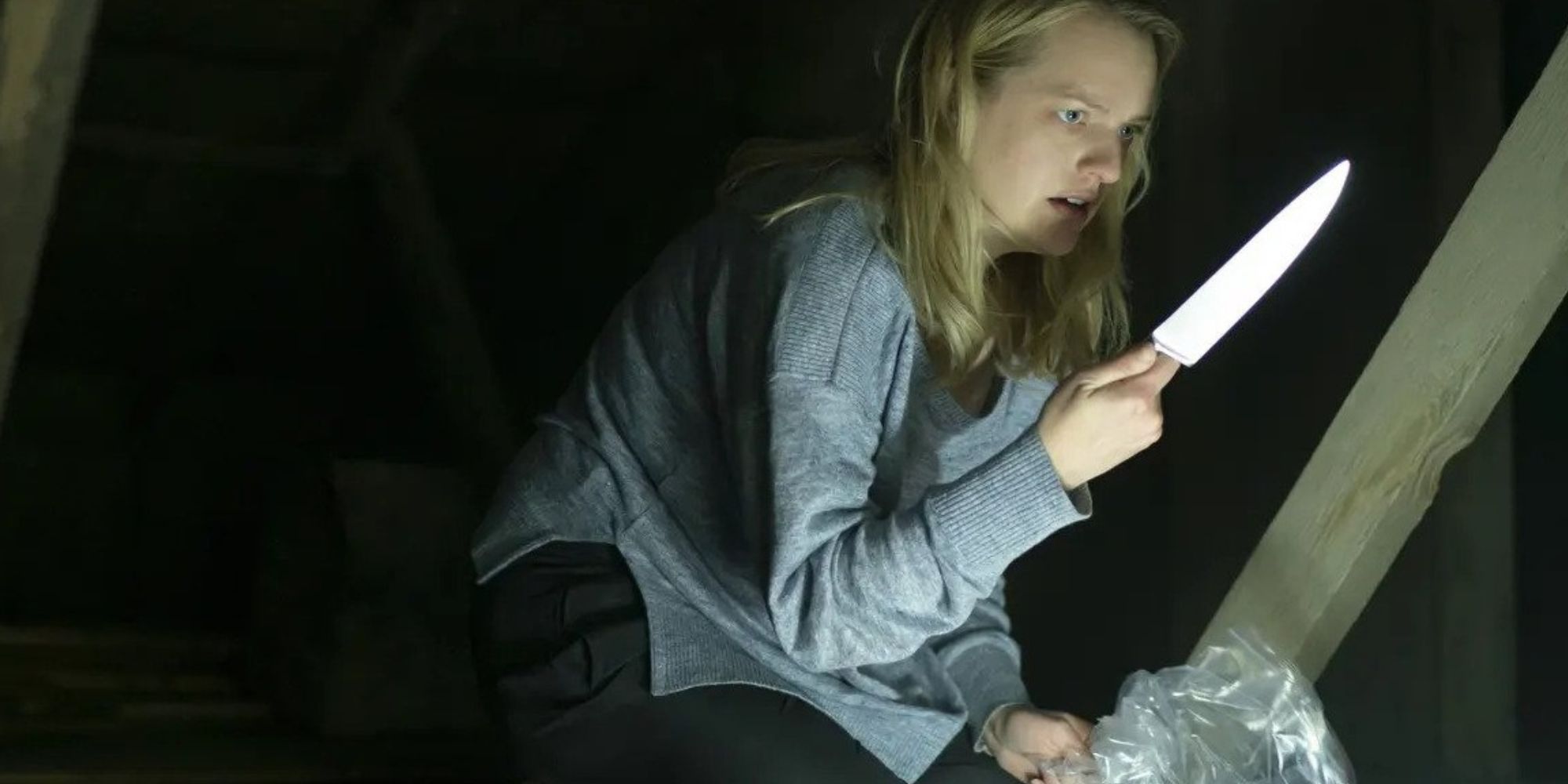[ad_1]
Nearly a century ago, Universal Pictures changed the way people look at movie monsters. The studio’s take on characters like Dracula, Frankenstein’s monsters, The Mummy, The Wolf Man, and so many more became pop culture icons that would forever influence both horror cinema and just cinematic storytelling in general. Thanks entirely to the efforts of artists like director James Whale and actors such as Bela Lugosi, these characters have become pop culture fixtures that will undoubtedly live on for eras to come. Despite that initial fame, various attempts in the 21st century to revive these characters have come up horrifically short. The Wolfman, Van Helsing, that 2017 Mummy movie — so many box office flops, and many of them not very good as pieces of entertainment. What’s going on? How come remakes of some of the most beloved monster movies ever have such a dismal track record?
‘The Mummy’s Success Convinced Universal All Their Monster Films Should Be Action Movies
Part of the blame for what’s gone wrong with 21st-century Universal monster movies is the last stab at reimagining these characters in the 20th century: The Mummy. This 1999 Brendan Fraser star vehicle is beloved today for its zippy sense of fun and the delightful chemistry between Fraser and Rachel Weisz. Being made in the mold of a classic adventure film like Indiana Jones also gave it something new to offer compared to the original Mummy films from the 1930s. Unfortunately, it had the bad after-effect of making Universal think all modern updates of Universal monster properties had to now be action films.
What was fresh about The Mummy became quite tired when other features just tried to mimic its success with no heart or creativity. Even the two Mummy follow-ups never got the alchemy just right again, even when one of them featured Michelle Yeoh in a key supporting role. The problem was that these subsequent imitators thought that all you needed to do was place some explosions and lots of CGI next to a Universal monster,and you were good to go. Case in point: the 2004 Van Helsing movie, which hailed from The Mummy director Stephen Sommers.
This movie crammed the silver screen with as many Universal monsters as it could while lots of CG beasties were also on hand to duke it out with leading man Hugh Jackman. But any of the fun of The Mummy or even just the nonsensical pleasures of the later Sommers blockbuster G.I. Joe: The Rise of Cobra was absent here. Van Helsing was a slog that somehow made Hugh Jackman tedious to watch, and none of the Universal monsters were given any discernible personality or sense of fun. The Mummy was a bolt out of the blue back in 1999, whereas Van Helsing felt like a lifeless mimicry of what had worked before.
Somehow, the failure of Van Helsing didn’t immediately put Universal off the idea of making new action blockbusters with these monster characters. A trio of Mummy movies that each cracked $400 million worldwide was enough to convince the studio that this is where these characters thrived. This meant that in 2014, Dracula got a gritty action movie origin story with Dracula Untold. An instantly forgettable endeavor, Dracula Untold, much like Van Helsing, leaned far too heavily on derivative blockbuster movie imagery and no real interesting action sequences to speak of. One would think committing to this genre would at least lead these Universal blockbusters to hire great fight choreographers, but alas, Dracula Untold had nothing in the way of exciting skirmishes.
The nadir of Universal’s action movie approach to the Universal monsters came in 2017 with a new take on The Mummy starring Tom Cruise. Set to be the start of an interconnected continuity of movies known as the Dark Universe, the 2017 Mummy traded out the bisexual vibes or zippy tone of its 1999 predecessor for a grim tone, too much lore, and uninvolving action scenes, making both the film and the Dark Universe a massive failure. Cruise has become known for his elaborate practical stunts in the modern cinematic landscape, but that talent couldn’t be put to use here in a movie that leaned heavily on big CGI set pieces (like a shot of London getting obliterated by a dust cloud). He was as lost as the audience, trying to figure out what was going on with this movie. Once again, Universal remained committed to making Universal monsters action stars, yet didn’t give these movies the creative freedom to be compelling action films. But that wasn’t the only common problem plaguing these features — far from it, in fact.
Modern Universal Monsters Movies Just Aren’t Scary
The biggest issue with the modern Universal monsters movies is a simple one: they aren’t scary. These characters became famous because of frightening films, yet their primary purpose in the modern era is to function as summer blockbuster stars like Dominic Toretto or the various Marvel and DC superheroes. It’s just not a mold that works well for all of these characters and constantly robs figures like Dracula of the opportunity to remind audiences of why they became so famous in the first place. People liked Dracula because he was spooky, not because he could summon an army of CGI bats on the battlefield. Devoid of scares, the Universal monsters are robbed of a lot of their personality. Meanwhile, many of these films try to ground these characters in reality. This means delightfully maximalist antagonists like Dracula or The Mummy lose distinctive visual traits that made them so beloved in the first place.
Universal loves these characters because they’re famous and move a lot of merchandise, but the constant insistence on taking them out of the horror genre and trapping them in tedious action movies suggests they innately don’t understand these beloved beasts. Meanwhile, the one pre-2020 21st-century stab at translating a Universal Monster into a horror movie, the 2010 feature The Wolfman, also suffered from some severe problems. Credit where credit is due, The Wolfman is far better than Van Helsing and Dracula Untold thanks to some enjoyably violent death scenes and director Joe Johnston’s affinity for retro genre movie details. Characters walking around creaky old manors at night illuminated only by the glow of a candlestick? That’s the kind of stuff I’m a sucker for.
Unfortunately, The Wolfman is still much too big of a production for its own good, with its grander scope undercutting the effectiveness of its scares. What should be a taut struggle between man and the beast inside feels like it’s getting lost in a convoluted narrative. The scares are also still too minimal, especially for what’s supposed to be an R-rated horror movie. The Wolfman is trying to be a modern-day horror interpretation of a Universal Monsters legend, but it’s still plagued by the excessive scale and clumsy writing of other titles from this era like Van Helsing.
‘The Invisible Man’ Showed What Modern Universal Monsters Movies Should Look Like
In 2020, The Invisible Man blew everyone’s mind by suggesting that Universal Monsters should go back to headlining stripped-down horror movies. It took Universal decades to realize that the studio should just go back to where it all began to finally get one of these characters right. Adhering to the Blumhouse model of modern horror (low budget, minimal scope) proved to be a boon for The Invisible Man. Instead of a barrage of CG henchmen, The Invisible Man was focused on wringing as many scares as possible from the concept of an abusive ex coming back as a vicious force you couldn’t see.
The Invisible Man was far from perfect as a movie. Chiefly, the feature’s handling of experiences of being in an abusive relationship ended on a sour note. That finale provided too tidy of a resolution to the protagonist’s psychological struggles with a violent ex-lover. However, The Invisible Man primarily provided great scares, creative uses of a monster, and was anchored by a terrific Elisabeth Moss performance. With this movie, a whole new era of Universal Monsters cinema opened up. These characters could still work like dynamite as horror stars while exploring weightier themes that earlier movies hadn’t explored. The genre could remain the same, but thematically, these motion pictures could break new ground.
The existence of Renfield and a slew of other horror features in development make it clear that Universal won’t be giving up on the pantheon of Universal Monsters characters anytime soon. The Invisible Man makes it apparent that these legends can still work in the modern world and work incredibly well. Unfortunately, a barrage of subpar 21st-century interpretations of these beasts, namely duds like Van Helsing and the 2017 Mummy movie, provide a great template for future Universal Monster films to avoid. In the modern world, Universal has too often forgotten about the scary and thoughtful qualities that earned the Universal Monsters their esteemed reputation in the first place.
Renfield is currently playing in theaters.
[ad_2]
Source link
Armessa Movie News


